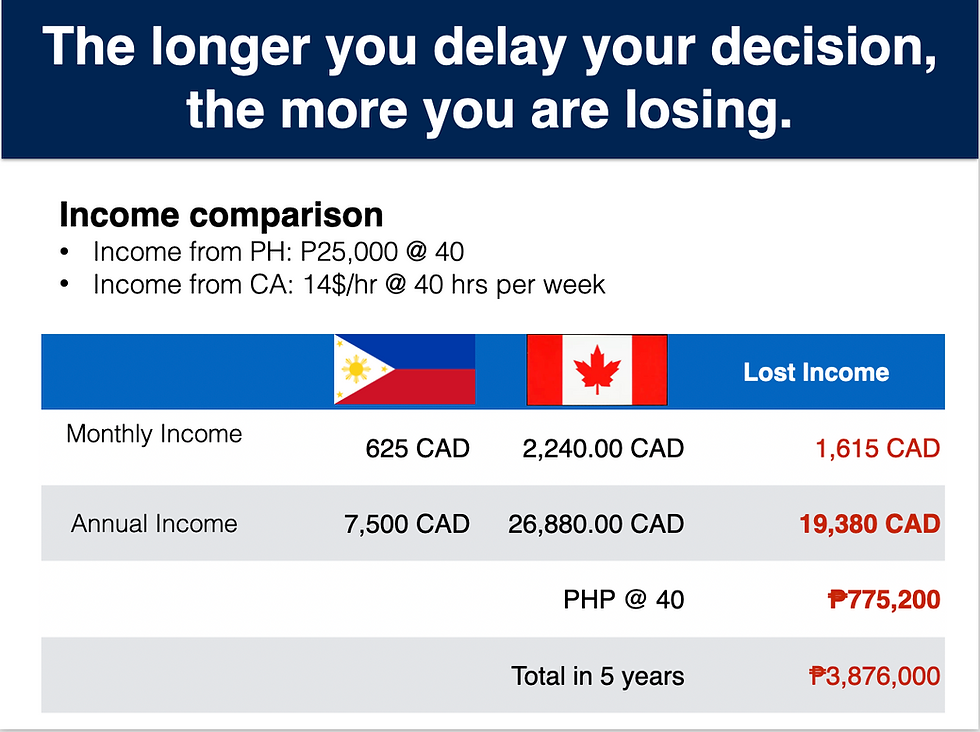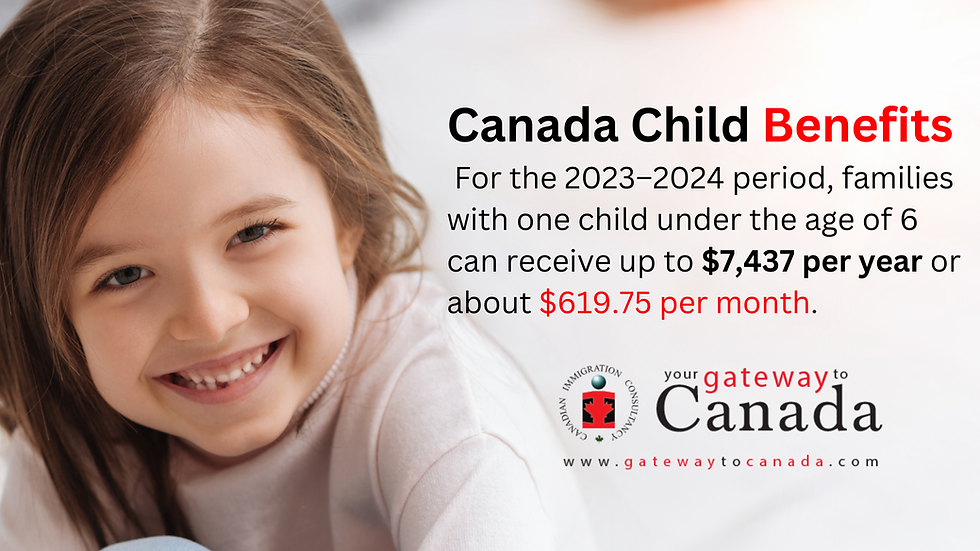Financial Safety Nets: How Immigrating to Canada Can Provide Your Family with a Better Quality of Life
- PIACORP Consultancy

- Jan 12, 2025
- 5 min read

When considering immigration, one of the most important factors to weigh is the financial security of your family. Beyond the promise of better job opportunities and higher wages, one key aspect that sets Canada apart from many other countries is its strong financial safety nets. These safety nets provide a buffer against life’s unexpected challenges—whether it’s an illness, job loss, or retirement—and ensure that Canadians can maintain a high quality of life, regardless of their financial situation.
If you’re contemplating a move to Canada, you may be wondering how the country’s social systems can improve the financial well-being of your family. In this blog post, we’ll explore the financial safety nets in Canada and explain how they contribute to a better quality of life for immigrants and their loved ones.
What Are Financial Safety Nets?
Financial safety nets refer to programs and services that provide financial support to individuals and families during times of need. These safety nets can include government-run programs such as unemployment insurance, universal healthcare, childcare subsidies, retirement pensions, and more. They ensure that, even in the face of adversity, individuals can maintain a reasonable standard of living.
How Canada's Financial Safety Nets Can Benefit Your Family
Universal Healthcare: Peace of Mind for Medical Expenses
One of the most significant financial burdens families face is the cost of healthcare. In many countries, including the Philippines and the U.S., healthcare can be prohibitively expensive, especially for serious illnesses, emergencies, or long-term care. Medical bills can bankrupt families or force them into debt, adding an immense amount of stress and uncertainty.
In Canada, universal healthcare is a fundamental right for all residents. Once you are a permanent resident or citizen, you have access to medically necessary hospital and physician services without having to worry about crippling medical costs. This means that in the event of illness or injury, you and your family won’t have to deplete your savings or go into debt to receive treatment.
For example, if your child needs surgery or treatment for a chronic condition, the costs are covered by the public healthcare system. You can focus on their well-being and recovery, rather than scrambling to pay for care.
In addition to public healthcare, many employers in Canada offer extended health benefits, covering things like dental care, prescription medications, and vision care. These benefits add an extra layer of financial protection, making it easier to manage everyday medical expenses.
Employment Insurance: A Safety Net for Job Loss
Job loss can happen unexpectedly—whether due to company downsizing, health issues, or economic downturns. In countries without strong safety nets, losing your job can lead to financial hardship, stress, and even loss of housing.
In Canada, if you lose your job, Employment Insurance (EI) provides temporary financial assistance. This program is designed to help individuals who are actively looking for work or participating in training programs to improve their skills. For most workers, EI provides up to 55% of their previous earnings, up to a maximum amount, for up to 45 weeks depending on the unemployment rate in your region.
This safety net can be a lifeline, helping families stay afloat while they search for new employment. It also gives them the peace of mind to know they can meet basic needs—like rent, food, and utilities—during tough times.
Child and Family Benefits: Support for Raising Children
Raising children comes with a range of costs, from healthcare and education to clothing and extracurricular activities. In many countries, families are left to navigate these expenses on their own, which can be challenging for those with lower incomes.
In Canada, the government offers several financial assistance programs for families with children. The Canada Child Benefit (CCB) is one of the most generous programs, providing monthly payments to families with children under 18. The amount of the benefit depends on family income and the number of children. Lower-income families can receive significant payments that help cover daily living costs, including food, housing, and education-related expenses.
In addition to the CCB, families may qualify for other provincial and territorial benefits, such as subsidies for childcare and additional support for children with special needs. These programs can make a major difference in a family’s ability to provide for their children, allowing them to focus on their future without financial strain.
Old Age Security (OAS) and the Guaranteed Income Supplement (GIS): Financial Support for Seniors
Retirement planning is a major concern for many families. In countries with little to no social safety nets, seniors may have to rely solely on their personal savings or continue working well into old age, making it difficult to enjoy a comfortable retirement.
In Canada, seniors are entitled to the Old Age Security (OAS) pension once they reach 65 years of age. This is a monthly payment that provides a basic income for retired individuals, regardless of their work history. For low-income seniors, the Guaranteed Income Supplement (GIS) further enhances their financial security, ensuring they can maintain a modest standard of living during retirement.
This financial support allows seniors in Canada to age with dignity, knowing that they won’t be forced to live in poverty or depend entirely on their children. It also provides peace of mind to families, knowing that their loved ones will be supported in their later years.
Affordable Housing Programs: A Roof Over Your Head
The cost of housing is one of the largest expenses for families, particularly in urban areas where demand is high. In cities like Toronto, Vancouver, and Montreal, high rental and homeownership prices can make it difficult for families to find affordable housing.
In Canada, there are a number of government initiatives designed to help families access affordable housing. For instance, the National Housing Strategy includes programs to build more affordable rental units, provide direct housing assistance, and support the construction of homes for low-income families. These programs make it easier for families to find safe and secure housing, reducing the financial strain that comes with rising rent prices.
In addition, Canadian cities typically have various subsidies and rent assistance programs for low- and moderate-income families, ensuring that housing costs are not a barrier to maintaining a good quality of life.
Retirement Savings: RRSP and Pension Plans
Planning for retirement is crucial to ensuring long-term financial stability. In many countries, workers must save for their own retirement, and those without substantial savings often struggle in their later years.
In Canada, workers have access to Registered Retirement Savings Plans (RRSPs), which are tax-advantaged accounts that encourage saving for retirement. Contributions to an RRSP are tax-deferred, meaning you won’t pay taxes on the money you save until you withdraw it in retirement. Additionally, many employers offer pension plansthat provide guaranteed income in retirement, further strengthening financial security.
These retirement savings programs help ensure that families can enjoy their later years without the financial stress that comes from inadequate savings or reliance on family support.
Conclusion: A Better Quality of Life in Canada
Immigrating to Canada isn’t just about higher wages or better job opportunities—it’s also about the security and peace of mind that comes with knowing that your family will be taken care of in times of need. Canada’s financial safety nets—from universal healthcare to child benefits and retirement pensions—are designed to protect families, ensuring they have the support they need to thrive, no matter what life throws their way.
For families seeking a better quality of life, Canada offers not just economic opportunities, but a social safety net that provides a strong foundation for success and well-being. Whether you’re raising children, planning for retirement, or recovering from an unexpected event, Canada’s programs can help your family live with confidence, knowing that the government has your back.
If you're ready to provide your family with the security and opportunities they deserve, immigrating to Canada could be the key to a brighter, more financially stable future.








Comments